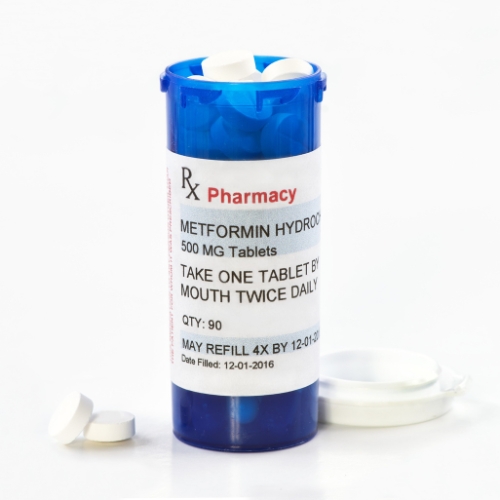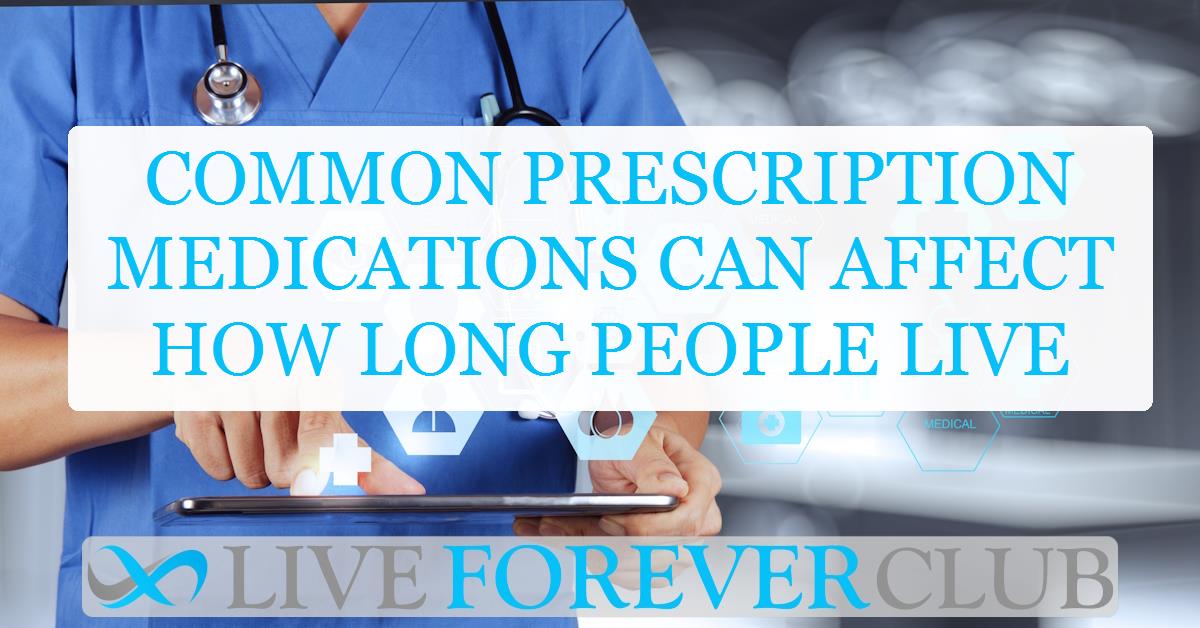Prescription medications are vital in managing various health conditions, yet their impact on overall mortality remains a subject of significant research.
Recently, a study published in Aging Cell explored the relationship between prescription drugs and all-cause mortality in the UK population, providing intriguing insights into how certain medications affect lifespan, not just in specific disease contexts but across the general population.
Understanding the Study
The study used data from the UK Biobank, one of the largest biomedical databases, containing detailed health information from over 500,000 individuals aged 37-73. It aimed to investigate the effect of the 406 most commonly prescribed drugs on mortality rates.
The findings confirmed some expected outcomes but also revealed surprising benefits for certain drugs not typically associated with longevity. The study raises important questions about medication use, repurposing, and the possibility of using common drugs to enhance health in older adults.
Methodology Behind the Insights
Data Collection and Analysis
The research team obtained prescription medication records, mortality data, comorbidities, and lifestyle information from the UK Biobank as of October 2023. They focused on 222,058 participants, excluding those for whom data was missing or deaths resulted from accidents or self-harm. The study analyzed 56 million prescriptions to determine whether taking specific drugs influenced lifespan outcomes.
Participants were categorized based on the prescription medications they took, with careful matching to controls who did not take these drugs but had similar health profiles. This matching process ensured that factors like smoking status, age, gender, comorbidities, and other relevant health information were accounted for, helping isolate the impact of individual drugs on overall survival.
Matching and Risk Evaluation
The team used a Nearest Neighbor Covariate Matching (NNCM) approach to compare participants on drugs with health-matched controls who were not prescribed these drugs.
They also corrected for multiple comparisons using the Benjamini-Hochberg procedure to avoid overstating statistical significance. Importantly, survival outcomes were analyzed for both the overall population and specific subgroups, such as males and females, to understand gender-specific impacts.
Drugs Linked to Increased or Decreased Mortality
The research confirmed that most prescription drugs correlated with increased mortality. This result is not unexpected, given that many drugs are prescribed for diseases that inherently carry a higher mortality risk. However, there were also several unexpected findings, including drugs that appeared to reduce mortality risk significantly, suggesting possible benefits beyond their intended medical use.
Drugs Associated with Increased Mortality
Out of the 406 drugs analyzed, 155 were associated with a higher risk of death. Among the most significant contributors to increased mortality were opioids such as Morphine Sulfate and Oramorph.
These drugs, often prescribed for severe pain, had hazard ratios indicating up to fivefold increases in mortality risk compared to controls. Other drugs associated with increased mortality included Furosemide (a diuretic often used for heart failure) and Tiotropium (used for Chronic Obstructive Pulmonary Disease or COPD).
The increased mortality for these drugs likely results from the severe health conditions they treat. For instance, heart failure and COPD are chronic diseases that greatly affect patients' quality of life and survival. Similarly, opioids, which are frequently prescribed for managing pain, carry well-known risks, including overdose and significant side effects, which might contribute to reduced lifespan.
Drugs Linked to Decreased Mortality
Interestingly, 14 drugs were linked to a reduced risk of mortality compared to health-matched controls. These included Sildenafil (commonly known as Viagra), Atorvastatin (used to control cholesterol), Naproxen (an anti-inflammatory), and Estradiol (used in hormone replacement therapy).
Sildenafil was associated with a notably lower hazard ratio (0.85), suggesting that its effects may go beyond treating erectile dysfunction. The drug has shown some promise in reducing cardiovascular risk, and other studies have indicated a potential for reducing Alzheimer's disease incidence.
Atorvastatin, a commonly used statin, also showed positive effects on survival, with a hazard ratio of 0.91. Statins have been known for their cardiovascular benefits, but their general association with increased lifespan is still debated. The study suggests that treating cardiovascular risk factors proactively in a broader population might translate into longer lifespans.
Anti-inflammatory drugs, such as Naproxen, were also linked with better outcomes. Chronic inflammation is a hallmark of ageing, often referred to as "inflammaging." The potential anti-ageing effects of anti-inflammatory medications could stem from their role in reducing systemic inflammation, thereby mitigating one of the key drivers of age-related decline.
Hormone replacement therapy (HRT) drugs like Estradiol were associated with significant reductions in mortality risk, particularly for postmenopausal women. Estrogen replacement has been shown to offer multiple health benefits, including maintaining cardiovascular health and bone density, although it is not without controversy due to potential cancer risks.
Gender-Specific Effects of Drugs
The study also explored how certain drugs affected men and women differently. Estrogen-related drugs were understandably studied in female populations, while PDE5 inhibitors like Sildenafil were assessed in male populations.
Notably, the gender-specific effects extended to drugs typically prescribed to both men and women. For instance, Atorvastatin showed a greater lifespan benefit for females compared to males, while Naproxen had a more pronounced protective effect in men.
These findings suggest the need to further investigate how gender influences drug efficacy, especially in the context of ageing. Biological differences between males and females, including hormone levels and immune system responses, may partly explain why some drugs work better or differently in one gender compared to the other.
Not All Dosages Are Equal
An important aspect of the study was the dose-response analysis. For drugs like Atorvastatin, the effect on lifespan was dose-dependent. Interestingly, the drug reduced mortality risk at moderate doses but either had no effect or increased risk at higher doses. Specifically, a 20 mg dose of Atorvastatin was linked to reduced mortality (hazard ratio 0.87), whereas an 80 mg dose was associated with increased mortality (hazard ratio 1.17).
Sildenafil similarly showed beneficial effects across various doses, with the most pronounced effect at 50 mg. These results imply that the benefits of certain drugs might hinge on using the right dosage, and higher doses do not necessarily translate into greater longevity benefits.
This highlights the importance of personalized medicine, where treatment is tailored to the individual's health profile and response to medication.
Drug Repurposing and Healthy Ageing
The findings from this study contribute to the growing body of evidence supporting the concept of drug repurposing for healthy ageing. Drugs like metformin and rapamycin have gained attention as potential anti-ageing medications, and the UK Biobank study suggests that several other drugs might similarly be repurposed to promote longevity. However, many challenges remain, particularly the need for clinical trials to validate these retrospective findings.
The Geroscience Hypothesis, which proposes that targeting the underlying mechanisms of ageing can delay age-related diseases and extend healthspan, underpins much of the current research into drug repurposing. The study's findings align well with this hypothesis by suggesting that several well-established drugs could modulate the ageing process itself, rather than simply treating symptoms of age-related diseases.
However, it is crucial to acknowledge the limitations of this type of research. Observational data, even from a well-designed study like the UK Biobank, cannot establish causation. Therefore, while the results are promising, they are only a first step toward determining whether these drugs genuinely extend lifespan or simply correlate with improved health in specific contexts.
Limitations and Future Research
The authors of the study acknowledge several limitations that need to be addressed in future research. The biggest challenge in such observational studies is confounding. For example, individuals taking Atorvastatin may have better healthcare access, healthier lifestyles, or other factors that contribute to increased longevity, rather than the drug itself being directly responsible for the benefit.
Another limitation is that the control groups may not have been perfect matches for those taking the drugs. Although the study used sophisticated matching techniques to account for various health variables, there is always a possibility that unmeasured factors influenced the results. Moreover, the prescription data available in the UK Biobank only goes up until 2017, potentially missing recent changes in drug usage or new drugs that might impact mortality.
Furthermore, the findings around hormone replacement therapy and anti-inflammatory drugs raise questions about dosage, treatment duration, and long-term risks. While some HRT drugs showed a positive impact on lifespan, these benefits must be weighed against known risks, including increased breast cancer risk for certain hormone therapies.
To translate these findings into actionable clinical recommendations, randomized controlled trials (RCTs) will be necessary. One notable example is the proposed TAME (Targeting Ageing with Metformin) trial, which aims to assess whether metformin can extend healthy lifespan in older adults. Similar trials would be needed for the other promising drugs identified in this study to conclusively determine their effect on longevity.
What Does This Mean for the Average Person?
For the general public, these findings highlight the complex relationship between medications and overall health. Most people take prescription medications to manage specific health conditions, often without considering their broader impact on lifespan or healthspan. This study suggests that some commonly used drugs could have unexpected benefits or risks for longevity, depending on the context in which they are used.
If you are taking statins, Sildenafil, or other drugs mentioned in the study, it is essential to remember that these findings are preliminary. Decisions about starting, continuing, or stopping medication should always be made in consultation with a healthcare provider. There is no "one-size-fits-all" solution, and the risks and benefits of each medication can vary significantly depending on an individual's overall health and medical history.
Moreover, these findings also emphasize the importance of healthy lifestyle choices. While some medications may help extend lifespan, factors like diet, exercise, avoiding smoking, and managing stress remain critical for promoting healthy ageing. Drugs like Naproxen or statins may support longevity partly because they help control inflammation or cardiovascular risk, which are also modifiable through lifestyle interventions.
New Frontier in Ageing Research
The study provides a fascinating glimpse into the potential for existing drugs to influence lifespan, even outside their traditional therapeutic roles. The findings underscore the importance of continuing research into the repurposing of prescription drugs for longevity, a field that holds tremendous promise for extending not only lifespan but also healthspan – the period of life spent in good health.
However, caution is warranted. The findings are based on retrospective data, which means that while associations can be identified, causal relationships cannot be confirmed without further studies. For now, the best approach for individuals interested in healthy ageing remains a combination of proven lifestyle strategies and carefully managed medical interventions, ideally under the guidance of healthcare professionals.
As researchers continue to explore the intricate relationships between medications and ageing, it is clear that some drugs we use today might play a role in shaping the future of ageing well. Until then, studies like this remind us of the complex interplay between health, disease, and longevity, encouraging a holistic view of medicine that goes beyond treating symptoms to enhancing overall life quality.
The study is published in the journal Aging Cell and was led by Alejandro Ocampo of University of Lausanne and EPITERNA.








